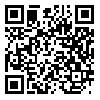Volume 12, Issue 3 (May & Jun 2022)
J Research Health 2022, 12(3): 193-202 |
Back to browse issues page
Download citation:
BibTeX | RIS | EndNote | Medlars | ProCite | Reference Manager | RefWorks
Send citation to:



BibTeX | RIS | EndNote | Medlars | ProCite | Reference Manager | RefWorks
Send citation to:
Mousavi F S, Marashian F S, Bakhtiarpour S. Effectiveness of Mindfulness-Based Stress Reduction and Dialectical Behavior Therapy on Pathological Worry and Difficulty in Emotion Regulation in Students With Depression Symptoms. J Research Health 2022; 12 (3) :193-202
URL: http://jrh.gmu.ac.ir/article-1-2036-en.html
URL: http://jrh.gmu.ac.ir/article-1-2036-en.html
1- Department of Psychology, Ahvaz Branch, Islamic Azad University, Ahvaz, Iran.
2- Department of Psychology, Ahvaz Branch, Islamic Azad University, Ahvaz, Iran. ,fsadatmarashian@gmail.com
2- Department of Psychology, Ahvaz Branch, Islamic Azad University, Ahvaz, Iran. ,
Abstract: (2517 Views)
Background: High school students may experience stress, worry, anxiety, educational problems, and psychological damage because of high workload, expansive cognitive assignments, and being in a competitive space regarding their assignments and the university entrance exam. The present study aims to investigate the effectiveness of mindfulness-based stress reduction (MBSR) and dialectical behavior therapy (DBT) on pathological worry and difficulty in emotion regulation in students with depression symptoms in Dehloran City, Iran.
Methods: This was a quasi-experimental study based on a pretest-posttest design with a control group. The statistical population comprised all 12-grade female students studying for the university entrance exam in the academic year of 2020-2021 in Dehloran City, Iran. A total of 45 students were selected through convenience sampling and randomly divided into MBSR, DBT, and control groups. The research instruments included the difficulties in emotion regulation scale, Penn State worry questionnaire, and Beck depression inventory-II. The data were analyzed via descriptive statistics and multivariate analysis of covariance.
Results: The Mean±SD of the pathological worry for MBSR, DBT, and control groups in the posttest phase were 33.67±3.69, 31.00±3.87, and 37.78±3.96, respectively. Moreover, the Mean±SD of the difficulty in emotion regulation in the posttest phase for MBSR, DBT, and control groups were 62.00±6.18, 61.60±6.95, and 72.20±6.84, respectively. The results indicated that the differences between MBSR and DBT groups with the control group were significant in terms of the scores for pathological worry and difficulty in emotion regulation of the university entrance exam applicants with depression symptoms in the posttest stage (P<0.001).
Conclusion: MBSR and DBT can be recommended to school counselors as effective interventions to improve emotion regulation and pathological worry in university entrance exam applicants with depression symptoms.
Methods: This was a quasi-experimental study based on a pretest-posttest design with a control group. The statistical population comprised all 12-grade female students studying for the university entrance exam in the academic year of 2020-2021 in Dehloran City, Iran. A total of 45 students were selected through convenience sampling and randomly divided into MBSR, DBT, and control groups. The research instruments included the difficulties in emotion regulation scale, Penn State worry questionnaire, and Beck depression inventory-II. The data were analyzed via descriptive statistics and multivariate analysis of covariance.
Results: The Mean±SD of the pathological worry for MBSR, DBT, and control groups in the posttest phase were 33.67±3.69, 31.00±3.87, and 37.78±3.96, respectively. Moreover, the Mean±SD of the difficulty in emotion regulation in the posttest phase for MBSR, DBT, and control groups were 62.00±6.18, 61.60±6.95, and 72.20±6.84, respectively. The results indicated that the differences between MBSR and DBT groups with the control group were significant in terms of the scores for pathological worry and difficulty in emotion regulation of the university entrance exam applicants with depression symptoms in the posttest stage (P<0.001).
Conclusion: MBSR and DBT can be recommended to school counselors as effective interventions to improve emotion regulation and pathological worry in university entrance exam applicants with depression symptoms.
Type of Study: Orginal Article |
Received: 2021/12/18 | Accepted: 2022/02/12 | Published: 2022/05/1
Received: 2021/12/18 | Accepted: 2022/02/12 | Published: 2022/05/1
| Rights and permissions | |
 |
This work is licensed under a Creative Commons Attribution-NonCommercial 4.0 International License. |









